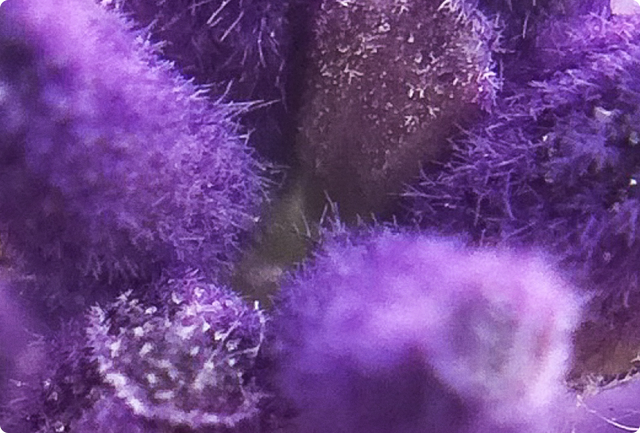About the Oil
Earthy, grounding, and unmistakably rich — patchouli essential oil is distilled from the leaves of the Pogostemon cablin plant, a member of the mint family. Its aroma deepens and improves with age, giving it a prized place in perfumery. Beyond its fragrant bouquet, patchouli is celebrated for its soothing effect on the skin, mood, and mind. Rich in sesquiterpenes like patchoulol, this oil has been used traditionally and clinically for its regenerative, antimicrobial, and calming properties.
Why You Would Use the Patchouli Essential Oil
This oil is a staple when you’re looking to:
- Soothe inflammation or irritation on the skin
- Calm the nervous system and promote emotional balance
- Support skin regeneration and reduce the appearance of scars
- Ward off insects naturally
- Add a deep, lasting base note to personal blends or perfumes
Clinical Findings
| Study | Participants & Methods | Key Results | Reference |
|
Antioxidant activity |
Literature review |
Patchouli demonstrated high antioxidant potential for food preservation |
Galovicova et al., 2022 |
|
Repellent activity |
Insect |
Patchouli oil shows potential as a natural insect control agent |
Feng et al., 2019 |
|
Eczema relief |
Literature review |
Patchouli helps reduce itching, calm inflammation, and heal damaged skin |
Dellana et al., 2023 |
Behind The Science (Made Simple)
Patchouli oil’s therapeutic benefits come largely from its high content of patchouli alcohol — a sesquiterpene known for its cell-regenerating, antimicrobial, and nervous system-calming effects. Here's how it works:
- Patchouli alcohol promotes skin regeneration by supporting fibroblast activity — which is essential for healing scars and improving skin texture.
- It also exhibits antidepressant-like properties, likely due to modulation of neurotransmitter pathways and relaxation of the central nervous system.
- The oil’s complex aroma engages the limbic system through inhalation, helping to reduce nervous tension and ground emotional overwhelm.
- Additional sesquiterpenes offer antifungal and antibacterial support, making it a powerful oil for skincare and household use.
How and Where It Grows
Patchouli is cultivated across Southeast Asia, especially in India, Indonesia, the Philippines, and Malaysia. The plant thrives in warm, tropical climates and requires specific harvesting practices — including shade-drying of the leaves before steam distillation. As it matures, the oil gains deeper aromatic qualities, making aged patchouli oil especially valued in perfumery and aromatherapy.
Use in Ancient Medicine
In traditional Ayurvedic and Southeast Asian medicine, patchouli has long been used to treat skin conditions, digestive discomfort, and even as a tonic for low mood. The oil’s ability to calm the mind and purify the body made it a staple in cleansing rituals, incense formulations, and natural remedies. It was also believed to ground spiritual energy and promote sensuality.
Symbolism
Patchouli is closely associated with rootedness, sensuality, and deep introspection. In energetic practices, it’s used to support the root chakra, offering a sense of safety, security, and presence. It invites us to slow down, connect to the earth, and cultivate resilience in body and spirit.
INFORMATION provided is intended for informational purposes only and is not meant to diagnose, treat, cure, or prevent any disease. Statements have not been evaluated by Health Canada or the FDA. Please consult a qualified healthcare provider before using essential oils for therapeutic purposes.
References
- Feng, Y. X., Wang, Y., You, C. X., Guo, S. S., Du, Y. S., & Du, S. S. (2019). Bioactivities of patchoulol and phloroacetophenone from Pogostemon cablin essential oil against three insects. International Journal of Food Properties, 22(1), 1365–1374. https://doi.org/10.1080/10942912.2019.1648508
- Ramya, H.G. & Palanimuthu, V. & Rachna, S.. (2013). An introduction to patchouli (Pogostemon cablin Benth.) - A medicinal and aromatic plant: It's importance to mankind. Agricultural Engineering International: CIGR Journal. 15. 243-250.
- Deliana, Fitri et al. “Therapeutic Effects of Patchouli (Pogostemon cablin) Essential Oil in Relieving Eczema Symptoms in Infants and Toddlers: A Literature Review.” Journal of Patchouli and Essential Oil Products (2023): n. pag.
- Galovičová, Lucia et al. “Biological Activity of Pogostemon cablin Essential Oil and Its Potential Use for Food Preservation.” Agronomy (2022): n. pag.








